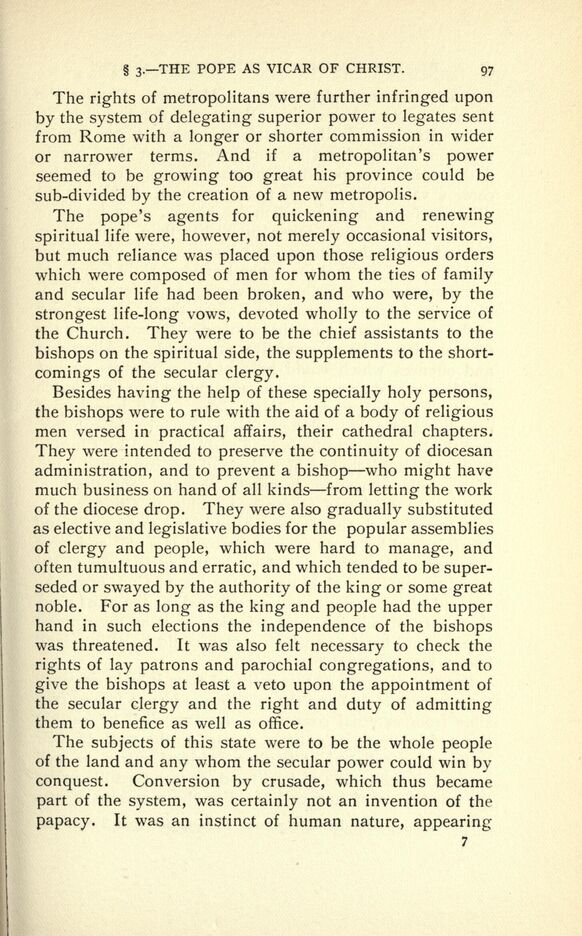
Full resolution (JPEG) - On this page / på denna sida - III. The Romanized Church under the Sverkers, Erics and Folkungar (1130—1389 A.D.)

<< prev. page << föreg. sida << >> nästa sida >> next page >>
Below is the raw OCR text
from the above scanned image.
Do you see an error? Proofread the page now!
Här nedan syns maskintolkade texten från faksimilbilden ovan.
Ser du något fel? Korrekturläs sidan nu!
This page has never been proofread. / Denna sida har aldrig korrekturlästs.
3 . THE POPE AS VICAR OF CHRIST. 97
The rights of metropolitans were further infringed upon
by the system of delegating superior power to legates sent
from Rome with a longer or shorter commission in wider
or narrower terms. And if a metropolitan s power
seemed to be growing too great his province could be
sub-divided by the creation of a new metropolis.
The pope s agents for quickening and renewing
spiritual life were, however, not merely occasional visitors,
but much reliance was placed upon those religious orders
which were composed of men for whom the ties of family
and secular life had been broken, and who were, by the
strongest life-long vows, devoted wholly to the service of
the Church. They were to be the chief assistants to the
bishops on the spiritual side, the supplements to the short
comings of the secular clergy.
Besides having the help of these specially holy persons,
the bishops were to rule with the aid of a body of religious
men versed in practical affairs, their cathedral chapters.
They were intended to preserve the continuity of diocesan
administration, and to prevent a bishop who might have
much business on hand of all kinds from letting the work
of the diocese drop. They were also gradually substituted
as elective and legislative bodies for the popular assemblies
of clergy and people, which were hard to manage, and
often tumultuous and erratic, and which tended to be super
seded or swayed by the authority of the king or some great
noble. For as long as the king and people had the upper
hand in such elections the independence of the bishops
was threatened. It was also felt necessary to check the
rights of lay patrons and parochial congregations, and to
give the bishops at least a veto upon the appointment of
the secular clergy and the right and duty of admitting
them to benefice as well as office.
The subjects of this state were to be the whole people
of the land and any whom the secular power could win by
conquest. Conversion by crusade, which thus became
part of the system, was certainly not an invention of the
papacy. It was an instinct of human nature, appearing
7
<< prev. page << föreg. sida << >> nästa sida >> next page >>